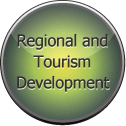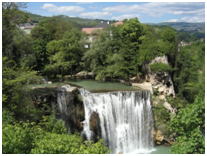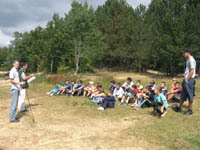
Project
| Sustainable Regional Development through Eco-tourism in Bosnia and Herzegovina |
|
Economic recovery and industrial reconstruction in Bosnia and Herzegovina has delayed after the collapse of the old socialist regime and economic system, and high unemployment and emigrant workers have become the predominant socio-economic issues in the country. The country divided by ethnic group into two entities ̶ Republika Srpska and the Federation of Bosnia and Herzegovina ̶ and it has been difficult to reconcile the two entities emotionally.
At the request of the government of Bosnia and Herzegovina, the government of Japan decided to implement the technical assistance through the “Study on Sustainable Development through Eco-Tourism in Bosnia and Herzegovina” as a development master plan including overall programs and action plans towards implementation, verified by several pilot projects for eco-tourism. As a result of the study, the government of Japan committed further technical assistance to implement the components of eco-tourism development projects prioritized by the master plan.
The project involved several components: 1) Strengthening public-private partnerships, 2) Promoting lodging business, 3) Encouraging eco-tourism activities, in particular historical cultural tourism, sports tourism and agro-rural tourism, and 4) Developing local products including agricultural products and craftwork. Capacity development programs were incorporated into all components as pillar activities in the project in cooperation with local governments and relevant tourism organizations, taking account of the inclusive program for reconciliation of between the two political entities through eco-tourism development.
|
 |
 |
 |
| Environmental improvement in Jajce |
Local product promotion |
Community workshop in Blagaj |
 Regional and Tourism Development Regional and Tourism Development
|